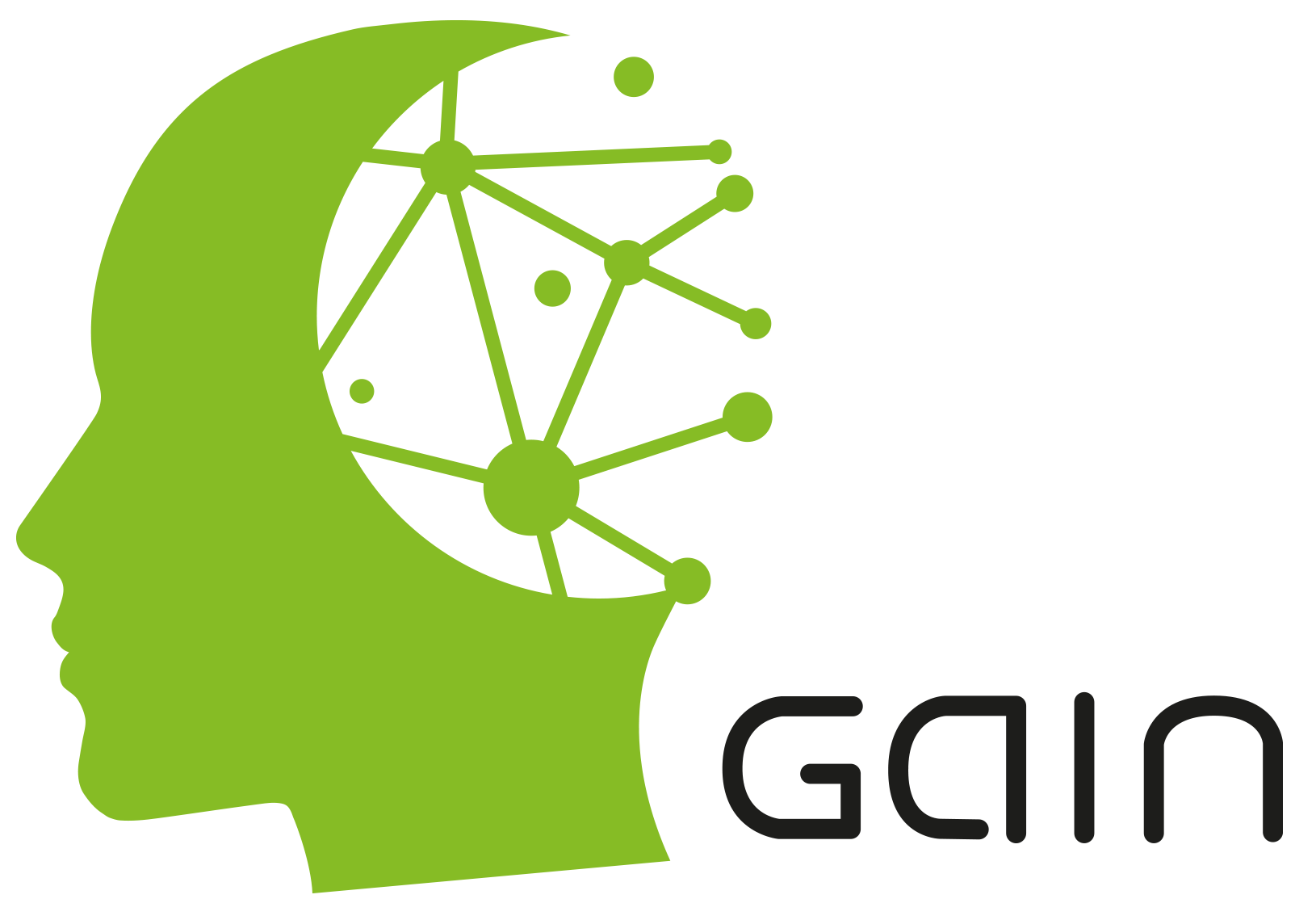
and
Neural Networks
GAIN Group Members
Currently, the GAIN-group consists of group leader, Ph.D. students,,,,
research associate
as well as student assistants Laura Ritter and Anthony Orellana.
In addition,Prof.
Dr. Bernhard Sick, head of the Intelligent Embedded Systems department of the University of Kassel, is our mentor. And,
senior scientist in Machine Learning and group leader at Fraunhofer IEE, is project leader of GAIN at our project partner
Fraunhofer IEE.
Dr. rer. nat. Josephine Thomas
Josephine is the leader of the junior research group GAIN.
She is a trained physicist and gained her doctorate with a thesis on non-linear
dimension reduction applied to a topic of complex network theory.
She choose to work on Machine Learning and specifically on GNNs because she likes to
do basic reseach but also see it go to a useful application quickly
and because graphs are just cool: they can describe the formation of the universe as well as the
internet, what more can a scientist want?
Her focus in GAIN next to supervising PhD students is the explainability of GNN algorithms.
Areas of Interest:
Graphs, deep learning, network geometry, quantum physics, renewable energies.
E-mail:
Phone:
+49 561 804 6061
PGP-key:
Download here
M.Sc. Silvia Beddar-Wiesing
Silvia is working towards her Ph.D. in the GAIN group with Dr. Josephine Thomas and Prof. Dr.
Bernhard Sick as her supervisors.
She graduated with a B.Sc. in Mathematics and a M.Sc. in Computer Science with a
specialization in Computational Intelligence and Data Analytics at the University of Kassel.
Her research topic addresses the embedding of structural-dynamic graphs using Neural
Networks. The focus is on embeddings that transform graphs with changing nodes and edges over time,
i.e.,
including additions and deletions of nodes and edges. In particular, the goal is to design a model based on Temporal Point Processes
that represents structural-dynamics in graphs as density function over time and, thus, provides an event prediction procedure.
Furthermore, Silvia is interested in comparing dynamic graphs and analyzing the expressivity of GNNs using the Weisfeiler-Lehman test.
Areas of Interest:
Pattern Recognition in Temporal and Structural Data, Expressivity of Neural Networks, Similarity Measures,
Data/Information/Knowledge Fusion.
E-mail:
Phone:
+49 561 804 6454
PGP-key:
Download here
Follow:
in
M.Sc. Alice Moallemy-Oureh
I am Alice and I am currently in the third year of my doctorate in the GAIN Group. Prior, I graduated
with a M.Sc. in Mathematics and its applications to Computer Science from the university of Kassel. My
specialisation in Mathematics lies in Algorithmic Commutative Computer Algebra and Geometry. In Computer
Science, I focused in Logic and Data Analytics.
I am particularly interested in developing Graph Neural Networks, which are designed to master the
handling of attribute dynamic graphs in continuous time representation. The first thing I would like to
focus on is the so-called node embedding of such graphs, as this can be used to keep almost unlimited
application possibilities open. The plan is to create more efficient wind power forecasts with the help
of such a model.
In general, I am a very open, honest, and enthusiastic person who likes to meet new people and is up for
any discussion - so don't be afraid to chat me up.
Areas of Interest:
Geometric Deep Learning, Machine Learning, Pattern Recognition, Commutative Computeralgebra,
Geometry, IT-security.
E-mail:
Phone:
+49 561 804 6363
PGP-key:
Download here
Follow:
in
M.Sc. Clara Holzhüter
I have joined the GAIN group in 2022 after I graduated with B.Sc. and M.Sc. in Computer Science at the
University of Göttingen. During my studies, I specialized in Computational Neuroscience, especially in
Deep Learning and Computer Vision.
The research area of my Ph.D. in the GAIN group is the application of GNNs in power grid applications.
Due to the inherent graph structure of electricity networks, GNNs are promising methods with regard to
representation learning and information extraction for different use cases. My goal is to develop GNNs
which enhance the efficiency and safety of electric networks by directly making use of their topology.
For this purpose, I aim to combine Reinforcement Learning with GNNs to learn to control the power grid
with regard to its topology. The field of graphs which change their topology or attributes over time is
of particular interest for me, since power grids are highly dynamic systems.
As a Ph.D. student at the Fraunhofer IEE my research also addresses the
application of such methods to real world problems, particularly in the field of energy applications.
Areas of Interest:
Graph Neural Networks, Deep Learning, Reinforcement Learning, Electricity Grids, Machine Learning, Graph Theory, Renewable Energies
E-mail (Uni):
PGP-key (Uni):
Download here
E-mail (Fraunhofer):
Follow:
in
M.Sc. Pascal Plettenberg
I have joined the GAIN group in 2024. I graduated with an M. Sc. in Physics from the
University of Kassel and during my studies, I specialized on Machine Learning applications in Theoretical
Physics and Materials Science.
Currently, I am aiming for my Ph.D. and my research topic is the application of GNNs to the design
and optimization of Printed Circuit Boards (PCBs). Electronic circuits can be naturally represented
as graphs and therefore, GNNs are a promising method for optimizing them in order to obtain electronic
devices that are more efficient and reliable. For this purpose, my goal is to combine GNNs with other
approaches, such as Human-in-the-Loop and Physics-informed Machine Learning.
Areas of Interest:
Deep Learning, Graph Neural Networks, Computer Vision, Electronics, Materials Science, Quantum Physics,
Fuel Cells
E-mail:
PGP-key:
Download here
Follow:
in
Cooperations
01IS20047A, according to the 'Policy for the funding of female junior researchers in Artificial Intelligence'.
020E-100626677, within the '7. Energieforschungsprogramm'.
16ME0877, according to the KMU-innovativ' guideline.
The responsibility for the content of this website or of any publication lies with the author.